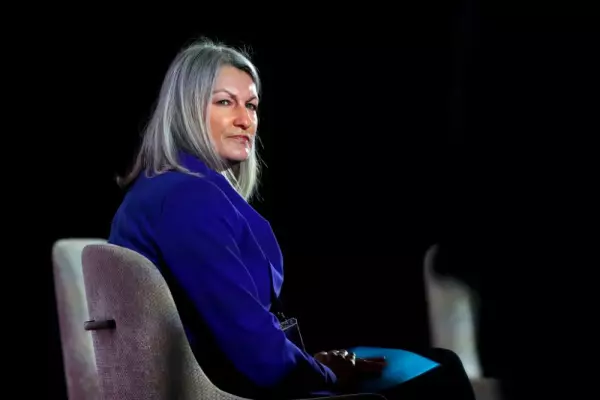What's a few broken rules between friends, eh?
The minutes of the Takeovers Panel's video conference last October, at which it deliberated on the Metlifecare takeover, fell into my inbox following an Official Information Act request.
The minutes portray a panel downplaying a number of Takeovers Code breaches and generally tying itself into pretzels so it could greenlight the takeover.
The panel's committee was chaired by PwC partner Carl Blanchard in Andy Coupe's absence with members Silvana Schenone, a partner at MinterEllisonRuddWatts, and Martin Stearne, the former investment banker who chaired the 2019 review of New Zealand's capital markets, in attendance.
Stripping out all the excuses, ifs and buts this committee used, its findings included that key assumptions used in valuing Metlifecare weren't disclosed.
It also found house price data included in the independent adviser's report was out of date and that independent adviser Calibre Partners hadn't taken into account falling interest rates in its second assessment of Metlifecare's value.
These findings stemmed from the investigation of an objection to the takeover lodged by an investor and which delayed court approval by about a week (shareholders had already voted to approve the takeover by that stage).
Let the excuses begin
Because, despite these problems, the panel decided the failure to disclose the key assumptions "was more of an issue with expression rather than of substance".
That was despite "the panel's view that the disclosures should have been included".
It also decided the out-of-date house prices were "not sufficiently material" and the failure to take into account falling interest rates was also "not sufficiently material" for the panel not to greenlight the takeover.
So, greenlight it, the panel did.
The bid at issue was Sweden-based EQT's $6 per share offer for Metlifecare via a scheme of arrangement.
EQT had withdrawn its earlier $7 per share offer, blaming the impact of the covid-19 pandemic on Metlifecare's value.
Unfortunately, all the source information attached to the minutes as appendices were redacted, as were the details of a second objection – the committee decided that second objection "did not relate to matters the panel could properly consider".
House prices and interest rates, of course, are key components in assessing how much a retirement village operator is worth.
Calibre Partners, formerly Korda Mentha, was charged with valuing Metlifecare's shares and the missing key assumptions related to CBRE's valuation of Metlifcare's retirement villages for the company's 2020 annual report.
The annual report was for the year ended June and Calibre's valuation was dated Aug 25 and released on Sept 3.
Timing crucial
The timing difference is crucial to understanding why relying on CBRE's valuation might not have been reasonable by August.
CBRE was tasked with valuing properties at the height of uncertainty about the impact of covid-19 and a little after the nation's lockdown ended.
All its property valuations at about that time were flagged as being subject to "material valuation uncertainty" because of the pandemic.
The picture was very different by Aug 25. The nation was months out of lockdown, retail sales were booming and it was already obvious that economists had been wrong in expecting house prices to fall.
The Real Estate Institute data were already showing accelerating annual house price inflation – its house price index (HPI) rose from 7.9% in May compared to a year earlier to 8.6% in June and 9.4% in July and that last figure was published on Aug 14, before Calibre finalised its report.
Yet Calibre's report included economists' forecasts from four of the five largest banks issued between April and July.
That latest was ANZ's and was published on July 8 forecasting house prices would decline 7% over 2020. However, ANZ had updated its forecast on July 21 and was then expecting a 1.6% annual decline.
It was a similar story with Westpac's forecasts. The one included in Calibre's report was dated May 4 and was for a 4.7% decline. Westpac updated its forecast on Aug 18 to a 0.2% increase.
The missing bank
The missing bank was BNZ which published a forecast on Aug 24 that house prices would rise 6.3% over the following year.
There was no way to get around the fact that the numbers Calibre used were out of date.
"The HPI figures in the table were out of date and Calibre Partners appeared to acknowledge this," the Panel concluded.
Then came the pretzel-making to minimise this awkward fact.
"However, it appeared that even if the more up to date figures had been considered, they would only have been provided as background information and there may not have been any change in the actual valuation," the panel said.
"While there may have been misstatements in background information, it did not appear that there had been an error in the figures which were actually used in completing the valuation," it said.
"It was unlikely that shareholders had been misled or deceived by the incorrect figures in a material way," it said.
It went on at length about why it thought this was so and concluded that the out-of-date data "was not sufficiently material to prevent the panel issuing a no-objection statement" – the latter is bureaucratese for the panel's green light.
Dubious then spurious
Remember, EQT flagrantly broke a contract by withdrawing its offer on April 7 on grounds that were dubious to begin with but, by the time of Calibre's valuation, were obviously spurious.
EQT had claimed the pandemic "has reduced or is reasonably likely to reduce the consolidated net tangible assets of Metlifecare by at least $100 million" and reduced likely earnings.
The complaint about Calibre's failure to take into account falling interest rates was similarly proved but then discounted by the panel.
The Calibre valuation was its second. It had prepared an earlier one in June when Metlifecare was planning legal action to force EQT to complete the $7 per share deal.
"It did seem unusual that when Calibre Partners had prepared the $7 scheme litigation IAR (independent adviser's report), they had factored in a change in interest rates – in June – but when preparing the (second) IAR, had not factored in a subsequent drop in interest rates in August," the panel said.
But the panel's pretzel-making was working overtime again: it noted that in order for that omission "to meet the standard for being misleading and deceptive, it would need to be not honestly held, not reasonably based or demonstrably wrong," it said.
It's only technical
And "it was important for the panel to not substitute its judgment for that of the independent adviser" and the arguments about interest rates "were technical".
The panel said decisions in arriving at the cost of capital "are notorious for being subject to judgment decisions."
Nevertheless, Calibre did do the calculation for the panel and said that if it had factored in the change in interest rates, it would have increased its valuation by 12 cents per share.
Again, that was "not sufficiently material to raise concerns in the full context of the complaint," the panel concluded.
To be clear, 12c per share would have lifted Metlifecare's valuation by $25.6 million on top of the $1.28 billion EQT paid.
I'm on record as saying at the time that EQT's lower offer was unjustified and that 20% shareholder, the New Zealand Superannuation Fund – which had paid $3.53 per share in October 2013 – sold NZ Inc down the river by accepting the lower offer, making it impossible for Metlifecare's board to try to parlay the price back up.
EQT might rightly be described as a marauding bully, but the regulator that could have checked it was revealed as a supine doormat.














